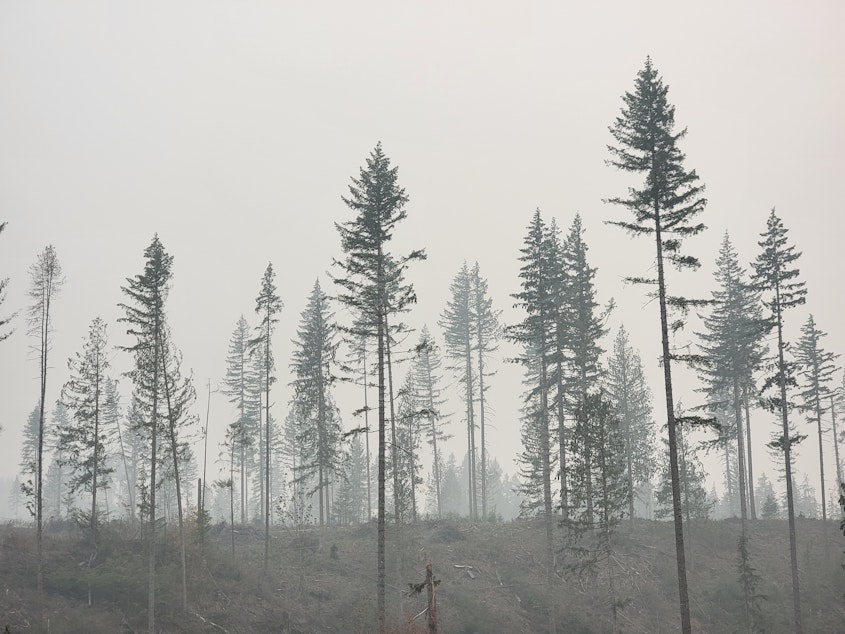Are smoke-free summers a thing of the past in Washington state?

The Washington Department of Health says this week, June 12-16, is the perfect time to prepare for unhealthy air that will likely arrive this summer due to wildfire season.
Wildfire smoke is expected to impact Washington again this season, and the Washington Department of Health wants residents to know how to cope when it's smokey out.
The best place to get state-focused air quality information is the Washington Smoke Blog. It's a one-stop shop for air quality information that includes not only updates about ongoing fires, but also tips about how to protect your health. Experts also write blog posts about the forecast and areas or days of concern.
RELATED: NW braces for 2023 wildfire season, expected to be a costly one
Kaitlyn Kelly, the air quality policy specialist for the Department of Health, said this is a good time to take proactive steps to protect yourself and your family
"As wildfire smoke gets worse, you need to do more things to protect your health," Kelly said. "The first thing is to limit your time outside or limit the intensity of activity outside.”
Exposure to smoke can cause a number of health problems ranging from minor to severe. Minor symptoms can include headaches, stinging eyes, runny nose, and trouble breathing.
Sponsored
The Department of Health suggests filtering indoor air by using an HVAC system with a MERV 13 filter, a HEPA portable air cleaner, or making a DIY BOX FAN FILTER.
Kelly said wildfire smoke is particularly bad because it carries extremely small particulate matter.
"So they get fast past all your defenses in your lungs and ... can even [get into] your bloodstream," she said. "That's why it's a particular risk compared to some other air pollutants."
Those with pre-existing conditions, infants, pregnant individuals, adults 65 and older, and people with heart and lung disease can be most sensitive to wildfire smoke.
Kelly also noted that children are particularly sensitive to wildfire smoke.
Sponsored
"Their lungs are still developing," she said. "And kids with health conditions are even more sensitive to exposure."
Kelly said it's important for parents to limit outside activity for children when the air quality index is unsafe.
"So, trying to do short intervals, so maybe 15 minutes of play instead of an hour or lighter activities," she said.
She also suggested walking or lower intensity exercises, or if you can, try and find a way for kids to be active inside.
"One of our concerns is when we bring people inside in general, they need to be finding ways to get exercise and health because that's important too," Kelly said.
Sponsored
Kelly also said it’s a good idea to buy supplies in advance of smoky conditions because items often sell out quickly when the air quality declines.
For those wondering if they can just wear a mask, Kelly says they're not a recommended first step for reducing exposure to smoky air.
"N95 respirators that are NIOSH approved to reduce exposure to smoke," could work if worn properly, Kelly said, but she added that the biggest issue with cloth or surgical face masks is getting a proper seal.
"That's the trick, not all masks work for everyone's face," she explained. "And so and if it doesn't, then the smoke will just get around the gaps and you'll breathe it in."




